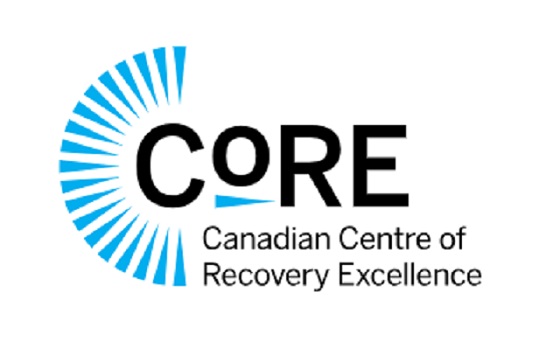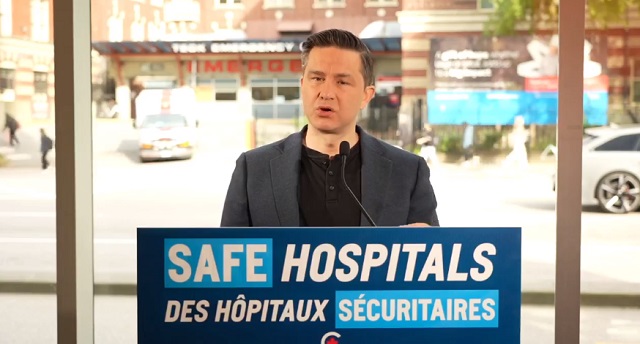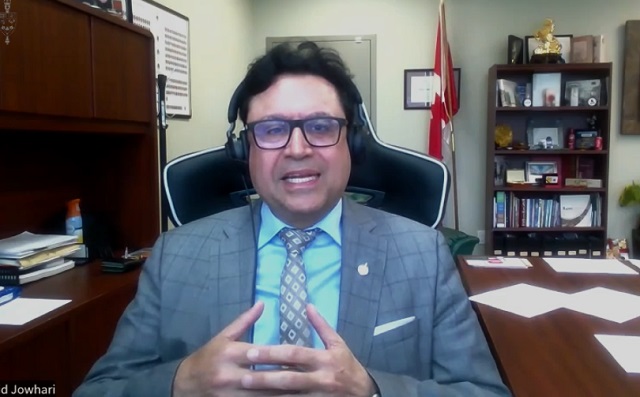Addictions
New organizations for mental health and addictions to provide focused care and take pressure off health system

Refocusing health care: mental health and addiction
Alberta’s government is creating two new organizations that will support the development of the mental health and addiction system of care.
In November 2023, Alberta’s government announced it would be refocusing health care with the creation of four new organizations that will be responsible for the oversight and delivery of health care services in the province. The four new organizations include acute care, continuing care, primary care and mental health and addiction. The mental health and addiction organization will be the first of these to be established when it becomes an entity later this year.
The new mental health and addiction organization, Recovery Alberta, will be responsible for the delivery of mental health and addiction services currently delivered by Alberta Health Services (AHS). In addition, Alberta’s government is establishing the Canadian Centre of Recovery Excellence (CoRE) to support Alberta’s government in building recovery-oriented systems of care by researching best practices for recovery from around the world, analyzing data and making evidence-based recommendations.
“Refocusing health care enables us to better prioritize the health care and services Albertans need. Giving Albertans living with mental health or addiction challenges an opportunity to pursue recovery and live a contributing life is the responsible and compassionate thing to do. I am so proud of the work we have done to be leaders on recovery, and I am looking forward to seeing both Recovery Alberta and the Canadian Centre of Recovery Excellence continue this work for years to come.”
“Alberta is leading the country with the development of the Alberta Recovery Model to address mental health and addiction challenges. The establishment of these two new organizations will support the delivery of recovery-oriented services to Albertans and will further cement Alberta as a leader in the field. We are proud to establish Recovery Alberta and CoRE as part of the Alberta Recovery Model.”
“We’re making good progress on refocusing health care in Alberta. Today marks a pivotal milestone towards creating a system that truly serves the needs of Albertans. Through this refocused approach, our aim is to prioritize the needs of individuals and families to find a primary care provider, get urgent care without long waits, access the best continuing care options, and have robust support systems for addiction recovery and mental health treatment.”
Recovery Alberta
In August 2023, Alberta’s Ministry of Mental Health and Addiction began the process of consolidating the delivery of mental health and addiction services within AHS, a process that was completed in November 2023 with no disruption to services.
Recovery Alberta will report to the Ministry of Mental Health and Addiction and further support the Ministry’s mandate to provide high-quality, recovery-oriented mental health and addiction services to Albertans. It is anticipated Recovery Alberta will be fully operational by summer 2024 and will operate with an annual budget of $1.13 billion from Alberta’s government. This funding currently supports the delivery of mental health and addiction services through AHS.
The current provincial leadership team for Addiction and Mental Health and Correctional Health Services within AHS will form the leadership team of Recovery Alberta. When Recovery Alberta is fully established, Kerry Bales, the current Chief Program Officer for Addiction and Mental Health and Correctional Health Services within AHS will be appointed as CEO. Dr. Nick Mitchell, Provincial Medical Director, Addiction and Mental Health and Correctional Health Services within AHS, will become the Provincial Medical Director for Recovery Alberta.
“Recovery Alberta will build on the strong foundation of existing mental health and addiction services that staff and clinicians deliver. By working closely with Alberta Mental Health and Addiction and the Canadian Centre of Recovery Excellence, Recovery Alberta will continue to set a high standard of care for mental health and addiction recovery across the province, and beyond.”
“Albertans deserve patient-centered care when and where they need it. By establishing Recovery Alberta, we have an opportunity to work together in a new way to make that a reality for our patients and our communities.”
While timelines are dependent on legislative amendments yet to be introduced, the Ministry of Mental Health and Addiction is aiming to establish the corporate structure of Recovery Alberta by June 3. Following the establishment of the corporate structure and executive team, staff and services would begin operation under the banner of Recovery Alberta on July 1.
Frontline workers and service providers will continue to be essential to care for Albertans. To ensure stability of services to Albertans, there will be no changes to terms and conditions of employment for AHS addiction and mental health staff transitioning to Recovery Alberta. Additionally, there will be no changes to grants or contracts for service providers currently under agreement with AHS upon establishment of Recovery Alberta.
Canadian Centre of Recovery Excellence (CoRE)
Alberta’s government has been leading the country in creating a system focused on recovery by building on evidence-based best practices from around the world. In five years, Alberta has removed user fees for treatment, increased publicly funded treatment capacity by 55 per cent and built two recovery communities with nine more on the way. Alberta’s government has also pioneered new best practices such as making evidence-based treatment medication available same day with no cost and no waitlist across the province through the Virtual Opioid Dependency Program.
To continue the innovative work required to improve the mental health and addiction system, Alberta’s government is creating the Canadian Centre of Recovery Excellence to inform best practices in mental health and addiction, conduct research and program evaluation and support the development of evidence-based policies for mental health and addiction. CoRE will be established as a crown corporation through legislation to be introduced this spring.
Alberta’s government has committed $5 million through Budget 2024 to support the establishment of CoRE. It is anticipated CoRE will be operational by this summer.
The CoRE leadership team will consist of Kym Kaufmann, former Deputy Minister of Mental Health and Community Wellness in Manitoba as the CEO. She will be supported by Dr. Nathaniel Day as Chief Scientific Officer of CoRE. Dr. Day currently serves as the Medical Director of Addiction and Mental Health within AHS.
“There is a need for more scientific evidence on how best to help those impacted by addiction within our society. The Canadian Centre of Recovery Excellence will generate new and expanded evidence on the most effective means to support individuals to start and sustain recovery.”
“The Canadian Centre of Recovery Excellence will provide the research and data we need to understand what works best when it comes to recovery. This new expertise and expanded evidence will provide us with further insight into how we can support communities, service providers and frontline staff to effectively help those living with addiction and mental health challenges.”
Quick facts
- Budget 2024 will invest more than $1.55 billion to continue building the Alberta Recovery Model.
- This includes a $1.13 billion transfer from Health to Mental Health and Addiction (MHA) for mental health and addiction services currently delivered by Alberta Health Services.
- Virtual engagement sessions for AHS staff and service providers will be held on April 11, 16, 17 and 22.
Related information
Addictions
Poilievre attacks decriminalization of hard drugs with Safe Hospitals Act

New release from the Conservative Party
The Hon. Pierre Poilievre, Leader of Canada’s Common Sense Conservatives, announced his plan today to ban dangerous weapons and drugs and punish those who harm doctors and nurses.
The Problem:
After nine years, Justin Trudeau’s radical experiment of decriminalizing hard drugs has failed. Since Trudeau formed government, over 42,000 Canadians have died from drug overdoses. Nanaimo, for example, has seen a nearly 400 percent increase in drug overdose deaths in the last four years alone, yet Trudeau decided to allow opioids, cocaine, heroin, and methamphetamine to be used in public places like hospitals and parks anyway.
The results of this experiment have been catastrophic. Chaos and disorder have reigned free in public spaces across British Columbia. Our once-safe hospitals are being destroyed by criminals and hard drugs, with the B.C. Nurses Union ringing the alarm bell, saying that patients and staff have been exposed to harmful, illegal drugs. The BC Nurses Union also reported that meth was being smoked in a unit just hours after the birth of a newborn baby. In northern British Columbia, the public health agency put out a memo telling hospital staff to allow patients to bring knives and other weapons into hospitals.
Life became so miserable that BC’s radical NDP Premier asked Justin Trudeau to walk back parts of his wacko decriminalization policy. But the Liberals haven’t learnt from their mistakes.
The Cause:
Two years ago, the Liberal Government granted the BC NDP Government’s request to allow hard drugs across the province, including in public spaces. In the first year of this reckless experiment, 2,500 Canadians died from drug overdoses. Meanwhile, community spaces like soccer fields, hospitals and city squares have been devastated by crime and disorder.
But Justin Trudeau refuses to rule out the requests from Toronto Public Health and the City of Montreal to allow hard drugs in Canada’s two largest cities. He also won’t say whether hard drugs should be allowed in children’s parks, hospitals and public transit. On top of this, the Liberal Minister of Mental Health refuses to acknowledge that their dangerous experiment was a failure.
The Solution:
Common Sense Conservatives will not allow this devastating experiment to play out in other Canadian communities. Canadians deserve a government that will keep hard drugs out of hospitals and will protect staff and patients. We will:
- Create an aggravating factor for the purposes of sentencing if a criminal has a weapon in a hospital.
- End the Health Minister’s power to grant exemptions under s.56 of the Controlled Drug and Substances Act if the exemption would allow people to use dangerous illicit drugs like fentanyl and meth in hospitals. This means that even if Trudeau grants Toronto and Montreal’s request to decriminalize hard drugs, our hospitals will be protected.
- Immediately pass Common Sense Conservative MP Todd Doherty’s Bill C-321, which will create an aggravating factor for assault committed against healthcare workers or first responders.
To be clear, the ban would not apply to any drugs prescribed by medical practitioners like doctors and nurses.
The Safe Hospitals Act will stop some of the insanity that Justin Trudeau and the NDP have unleashed on Canadians with their plan to decriminalize the public use of hard drugs everywhere in Canada. A Poilievre government will ban hard drugs, stop giving out taxpayer-funded opioids, and reinvest that money in treatment and recovery so we can bring home our loved ones drug-free.
Poilievre said:
“Justin Trudeau’s decriminalization experiment has failed. It has resulted in death, misery and destruction across British Columbia, while our hard-working nurses live in fear of inhaling dangerous drugs or being attacked by criminals.
“Instead of learning from this catastrophic mistake, Trudeau has doubled down. He’s refusing to reject Toronto and Montreal’s request to allow hard drugs like fentanyl and heroin to be used in Canada’s two biggest cities.
“Common Sense Conservatives will keep doctors, nurses and patients safe, even if Justin Trudeau won’t. The Liberals and NDP must vote for this common sense Bill until we can form a government that ends this deadly hard drug decriminalization experiment for good.”
Addictions
Liberals shut down motion to disclose pharma payments for Trudeau’s ‘safe supply’ drug program

Liberal MP Majid Jowhari
From LifeSiteNews
The motion comes as RCMP testified in April that Trudeau’s taxpayer funded ‘safer supply’ drugs are being diverted to the black market.
Liberal Members of Parliament (MPs) resisted a motion to disclose payments made to pharmaceutical companies for “safe supply” opioids.
During a May 15 session in the House of Commons, Liberal MPs blocked a vote on a motion by Conservative MP Garnett Genuis to publish the contacts between Prime Minister Justin Trudeau’s government and pharmaceutical companies for “safe supply” opioids.
“Allow the public to see the contracts,” Genuis told the Commons government operations committee, questioning, “What do you have to be afraid of?”
“There are contracts involving this government and big pharmaceutical companies involved in producing and selling dangerous hard drugs which then end up on our streets,” he argued.
“Big pharmaceutical companies are involved in supplying hard drugs that are used as part of the government’s so-called ‘safe supply’ program,” Genuis continued. “These programs are a failure. We oppose them. In any event, we believe the public has a right to see the contracts.”
However, a committee vote on his motion was quickly blocked by Liberal MPs.
“I don’t think this is a motion we should move forward with,” Liberal MP Majid Jowhari said.
“I think we should go back and look at it and say our objective is to get an understanding of the source of safe supply and how it is being procured, which is different than going and saying, ‘Give us all the contracts,’” he continued.
Similarly, Liberal MP Irek Kusmierczyk claimed the request was a political tactic, saying, “They are against safe supply and safe consumption sites. That is clearly spelled out by my Conservative colleagues.”
Genuis’ request comes as the Royal Canadian Mounted Police (RCMP) testified in April that Trudeau’s taxpayer funded “safer supply” drugs are being diverted to the black market.
“Organized crime groups are trafficking not only illicit substances but any prescription drugs they can get their hands on,” Deputy Commissioner Dwayne McDonald, commander of the RCMP in British Columbia, testified.
Genuis put forward a motion asking that the committee “order the production of all contracts, agreements or memoranda of understanding to which the Government of Canada is a party signed since January 1, 2016” concerning the purchase of opioids.
Liberals’ refusal to release the contracts comes as the Trudeau government recently rejected a proposal from the Alberta government to add a “unique chemical identifier” to drugs offered to users under “safe-supply” programs so that authorities could track its street sales.
Indeed, the Trudeau government seems determined to pretend their “safe-supply” programs are a success despite the rising deaths and crime in cities that have adopted their policy.
However, the program proved such a disaster in British Columbia that the province recently requested Trudeau recriminalize drugs in public spaces. Nearly two weeks later, the Trudeau government announced it would “immediately” end the province’s drug program.
Beginning in early 2023, Trudeau’s federal policy, in effect, decriminalized hard drugs on a trial-run basis in British Columbia.
Under the policy, the federal government began allowing people within the province to possess up to 2.5 grams of hard drugs without criminal penalty, but selling drugs remained a crime.
Since being implemented, the province’s drug policy has been widely criticized, especially after it was found that the province broke three different drug-related overdose records in the first month the new law was in effect.
The effects of decriminalizing hard drugs in various parts of Canada has been exposed in Aaron Gunn’s recent documentary, Canada is Dying, and in U.K. Telegraph journalist Steven Edginton’s mini-documentary, Canada’s Woke Nightmare: A Warning to the West.
Gunn says he documents the “general societal chaos and explosion of drug use in every major Canadian city.”
“Overdose deaths are up 1,000 percent in the last 10 years,” he said in his film, adding that “(e)very day in Vancouver four people are randomly attacked.”
-

 COVID-192 days ago
COVID-192 days agoJapan’s most senior cancer doctor: COVID shots are ‘essentially murder’
-

 Brownstone Institute1 day ago
Brownstone Institute1 day agoThe WHO’s Proposed Pandemic Agreements Worsen Public Health
-

 armed forces2 days ago
armed forces2 days agoTrudeau government has spent $10 million promoting DEI in the military as recruitment flounders
-

 COVID-192 days ago
COVID-192 days agoThe New York Times Admits Injuries from COVID-19 Shots
-

 National2 days ago
National2 days agoTrudeau again blames ‘climate change’ for mostly man-made wildfires
-

 Automotive2 days ago
Automotive2 days agoRed States Sue California and the Biden Administration to Halt Electric Truck Mandates
-

 Alberta2 days ago
Alberta2 days agoPharmacist-led clinics improve access to health care: Lessons from Alberta
-

 COVID-191 day ago
COVID-191 day agoElon Musk-backed doctor critical of COVID response vows appeal after court sides with medical board





